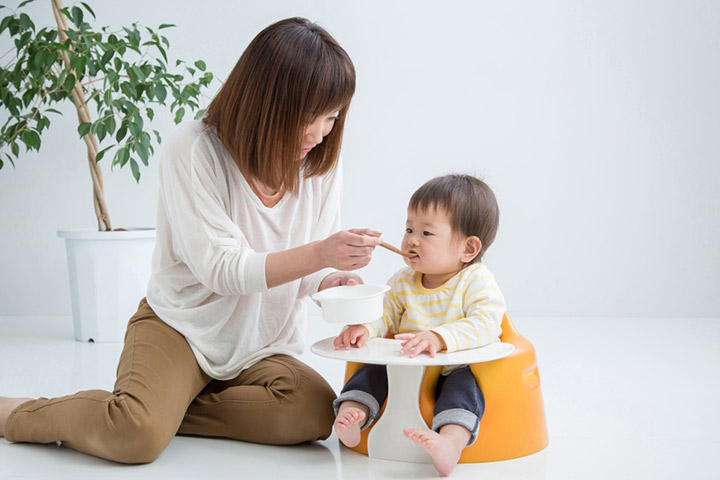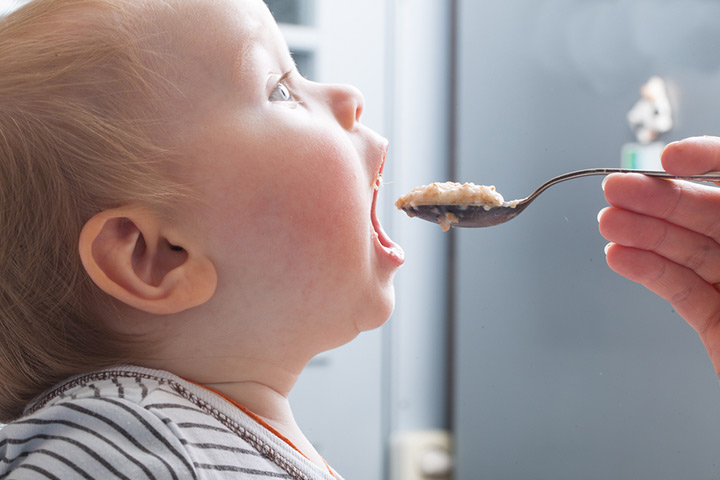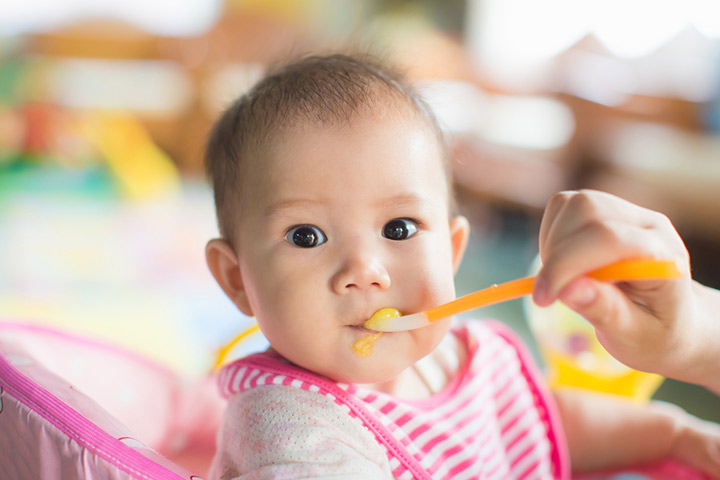
Image: Shutterstock
Food is an integral part of any culture. You associate different kinds of food with different festivals and prepare a particular spread for it. You also save specific foods for specific occasions, and sometimes, that’s the part you look forward to the most. When it’s someone’s birthday, the first thing you probably think about is what they would like to eat (apart from cake, of course). The same applies for festivals too. Whether it is kajjaya for Diwali, obbattu for Ugadi, inji puli for Onam, or plum cake for Christmas, food brings out the importance of culture and heritage.
Most parents will enjoy teaching their kids about their culture and its importance. That includes food. When you introduce your baby to solid food, why not begin with your cultural food? You might be concerned about if it’s the right move for your baby, and if you consult your baby’s pediatrician, they’ll let you know. While you are contemplating whether you should include your baby in your next celebratory meal, we are here to tell you why it’s important and essential. Here are a few things to consider to introduce your baby to delicious cultural foods:
- Start With What Is Comfortable For You
When you are thinking of introducing your baby to solid foods, you might hear tons of unsolicited advice about what you should and should not do. Pay no heed to them. Stick to what you’re comfortable with and feed your baby some flavorful food. Aromatic foods are good for your baby. Ensure that it is not too spicy. However, it’s not necessary to altogether avoid spicy food for your baby. Experts say that if you’re consuming it, it’s present in your breast milk which the baby consumes (1). You can delay the introduction of hot spices in your baby’s diet.
- You Don’t Have to Make Separate Meals For Your Little One
Instead of preparing a special dinner for your little one, you can save time by giving them the same food prepared for all. Introducing cultural foods to your baby becomes easier because you can all share the same meal rather than cooking your baby’s meal separately. You can spend the quality time you save from cooking extra meals with your baby instead of spending it in the kitchen.
- Your Baby Might Be Familiar With The Flavor
When you were pregnant, the cravings you had and all the food you consumed would have been transferred to your growing baby. Therefore, your baby would have been introduced to various flavors while in the womb. Why would you want to stop now? Why not give them the taste of these flavors when they are out in the real world? Let your baby give regular food a chance. You never know how they would react to it.
- Be Mindful Of What Your Baby Eats
It’s great to have your baby introduced to cultural food, but you have to consider the safety of certain kinds of food for an infant. Instruct and educate people around you about what your baby can and cannot eat. Be it your family, babysitter, or close friends, let them know that specific foods are out of bounds until the doctor gives you the green light. It’s best if you have a discussion with them about what they feed your baby when you are not around.
It’s an exciting time in a parent’s life to see their baby go through several milestones, and switching to solid food is definitely one of them. If you’re a foodie and enjoy your cultural food, it’s time to get your baby to join the group. Go cultural! Do you agree with this article? Comment below and let us know.
















